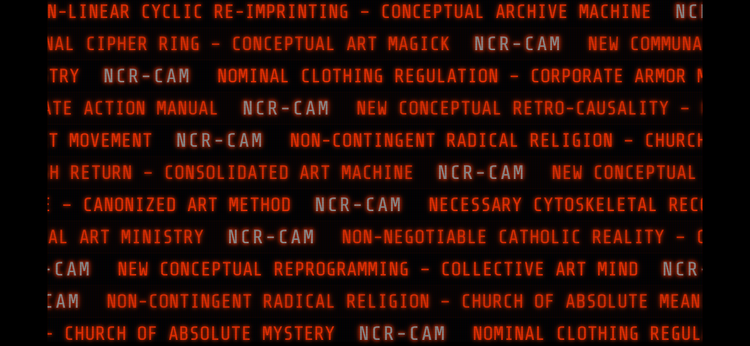Trump Tears

Trump's Woes: Navigating Post-Conviction Life

Donald Trump's conviction has sent shockwaves through the political landscape, marking the first time a former U.S. president has been found guilty of a crime. As Trump faces the aftermath, his behavior and the legal proceedings to come will be under intense scrutiny. Here’s a breakdown of what’s next for Trump and how it could impact his future.
1. The Risky Road to Sentencing
Trump's public outbursts following his conviction could influence his sentencing. Scheduled for July 11, Trump’s fate lies in the hands of New York Supreme Court Justice Juan Merchan. Despite the conviction for nonviolent Class E felonies, legal experts believe incarceration is unlikely. Probation, fines, or a conditional discharge are more probable outcomes. However, every inflammatory statement Trump makes could sway the judge’s decision.
2. Jurors' Silence Speaks Volumes
The jurors in Trump’s trial are unlikely to fade into obscurity. Though their identities remain confidential, the intense public interest might draw them out. History shows that jurors in high-profile cases often share their stories, sometimes for media deals. Whether or not they choose to speak, their experiences and deliberations remain a point of fascination.
3. Trump’s Real Verdict: Election Day
Trump’s conviction doesn’t bar him from running for president, leaving his political future in the hands of voters. Despite his legal troubles, Trump remains defiant, framing the upcoming election as the ultimate judgment of his actions. Polls suggest mixed reactions among his supporters, with a conviction causing some to reconsider their support.

4. Appeals and Legal Limbo
Trump plans to appeal the verdict, but the process is lengthy. Even if successful, it’s unlikely to conclude before the 2024 election, meaning Trump will remain a convicted felon on Election Day. This ongoing legal saga adds another layer of complexity to an already tumultuous political climate.
Q&A: Trump’s Legal Quandaries
Can Trump pardon himself if elected president?
Not for state crimes. The president’s pardon power doesn’t extend to state convictions, making a self-pardon impossible in this case. However, New York’s governor could issue a pardon, though it’s improbable.
Will Trump be able to vote for himself in the 2024 election?
Yes, Trump can vote in Florida despite his felony conviction in New York. Florida law allows residents convicted in other states to vote unless barred from voting in the state of conviction, which isn’t the case in New York.
As Trump navigates his new reality as a felon, his every move will be closely watched. The interplay between his legal battles and political ambitions will shape the narrative of his unprecedented post-conviction life.
Trump’s Post-Conviction Path: Navigating Tumult and Tension
The recent conviction of Donald Trump on 34 felony charges has intensified the already volatile political climate, revealing deep fissures within the American right. Following the verdict, Trump’s alter ego on social media, Bronze Age Pervert, posted a provocative movie clip implying violent retaliation after Trump's potential reelection. This incendiary rhetoric, while alarming, isn't isolated but part of a broader trend of escalating extremism among Trump’s staunchest supporters.
The Risk of Violence in Trump’s Wake
The aftermath of Trump's conviction has seen an outpouring of extreme language from his followers. While many Republicans expressed outrage without resorting to threats, more radical elements, such as certain Proud Boys chapters, have openly called for "war" on platforms like Telegram. Instances of Trump supporters advocating violence against jurors and the judge have surfaced, echoing a dangerous narrative that threatens to undermine the rule of law.
Influential Voices Fan the Flames
Notably, some of the most intense rhetoric has emanated from prominent right-wing figures. Auron MacIntyre of Blaze Media called for Republican district attorneys to imprison "corrupt Democrats," while Sean Davis of The Federalist urged right-wing adherents to "terrorize the Left." These calls for aggressive political retribution indicate a shift where extreme language is no longer confined to the fringes but is permeating mainstream discourse.
Assessing the Immediate Threat
Despite the inflammatory rhetoric, immediate mass mobilization seems unlikely. Historical precedents, such as the January 6 Capitol riot, show that large-scale actions require extensive groundwork and incremental escalation. While online posts can inspire isolated acts of violence, as seen in past incidents like the Pizzagate shooting and the Buffalo supermarket attack, sustained and coordinated mass protests take time to organize.
The Pattern of Escalation
The lead-up to January 6 involved months of escalating rhetoric and smaller protests, which laid the foundation for the eventual insurrection. The anti-lockdown protests during the pandemic served as a critical rehearsal, demonstrating the potential for coordinated action. These events created a blueprint for right-wing mobilization, highlighting specific logistics and gathering spots, such as the Hotel Harrington and Harry’s bar in D.C., that facilitated larger gatherings.
Comparing Movements on the Left and Right
While left-leaning movements have sometimes quickly assembled large protests, often centered on widely shared values like opposition to racism, right-wing causes typically lack this broad appeal. Trump's popularity, despite his devoted base, doesn't match the widespread support that movements like the George Floyd protests garnered. This difference in public support impacts the ability of right-wing movements to mobilize rapidly and on a large scale.
Potential Future Developments
Jared Holt, an extremism researcher, suggests that current rhetoric may be more about laying "permission structures" for future political retaliation rather than immediate grassroots violence. The legacy of 2020’s unrest remains, and while mass mobilization isn't imminent, the potential for escalating confrontations exists. Future protests and physical actions could signal the next phases of this turbulent period.
As Trump navigates his post-conviction life, his actions and the responses of his supporters will continue to shape the political landscape. The interplay of extreme rhetoric and political strategy will be crucial in determining whether the current tensions escalate into broader conflicts or remain confined to sporadic outbursts. The path forward is fraught with uncertainty, but one thing is clear: the specter of political violence looms large, casting a shadow over the nation's future.






Member discussion